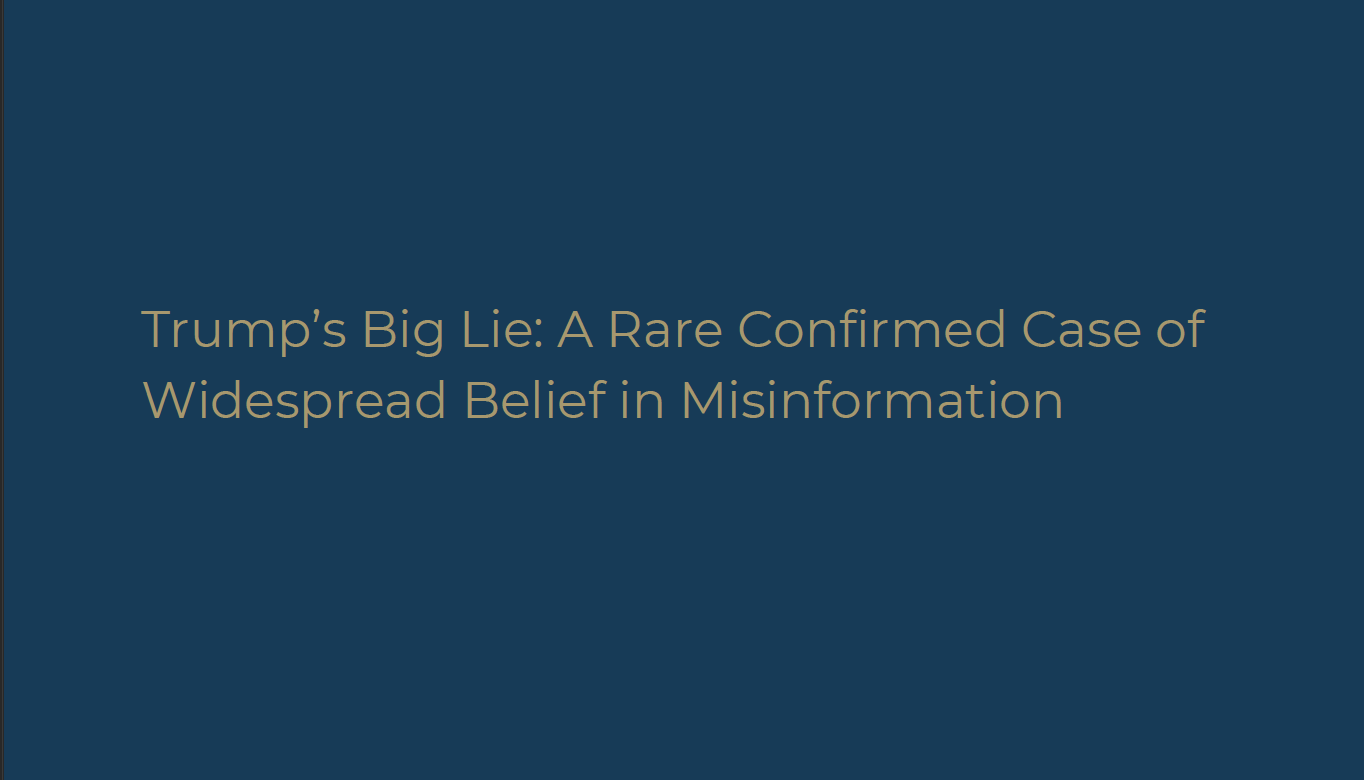Accounts of the misinformation problem are filled with examples of “true believers” who have been exposed to, and accept, false claims. Many people really do believe the wild, unsupported lies that emanate from the QAnon movement or vaccine conspiracy theorists. But how many people?How representative are anecdotes about true believers?
Figuring out how many people believe in misinformation is a difficult because the prevailingmethod of measuring public opinion --- multiple choice survey questions --- is poorly suited tothe task. In a survey, people can endorse false claims that they have never heard before. They maybe ignorant of the truth and be making a bad guess. They may know little about the topic andmerely find the falsehood plausible. Or, they may be misrepresenting their beliefs, choosing partisan answers because it is more fun than revealing what they actually believe to be true. Simply put, the fact that someone picks an answer in a survey is not evidence that they believe it.
You can access the full report here.


